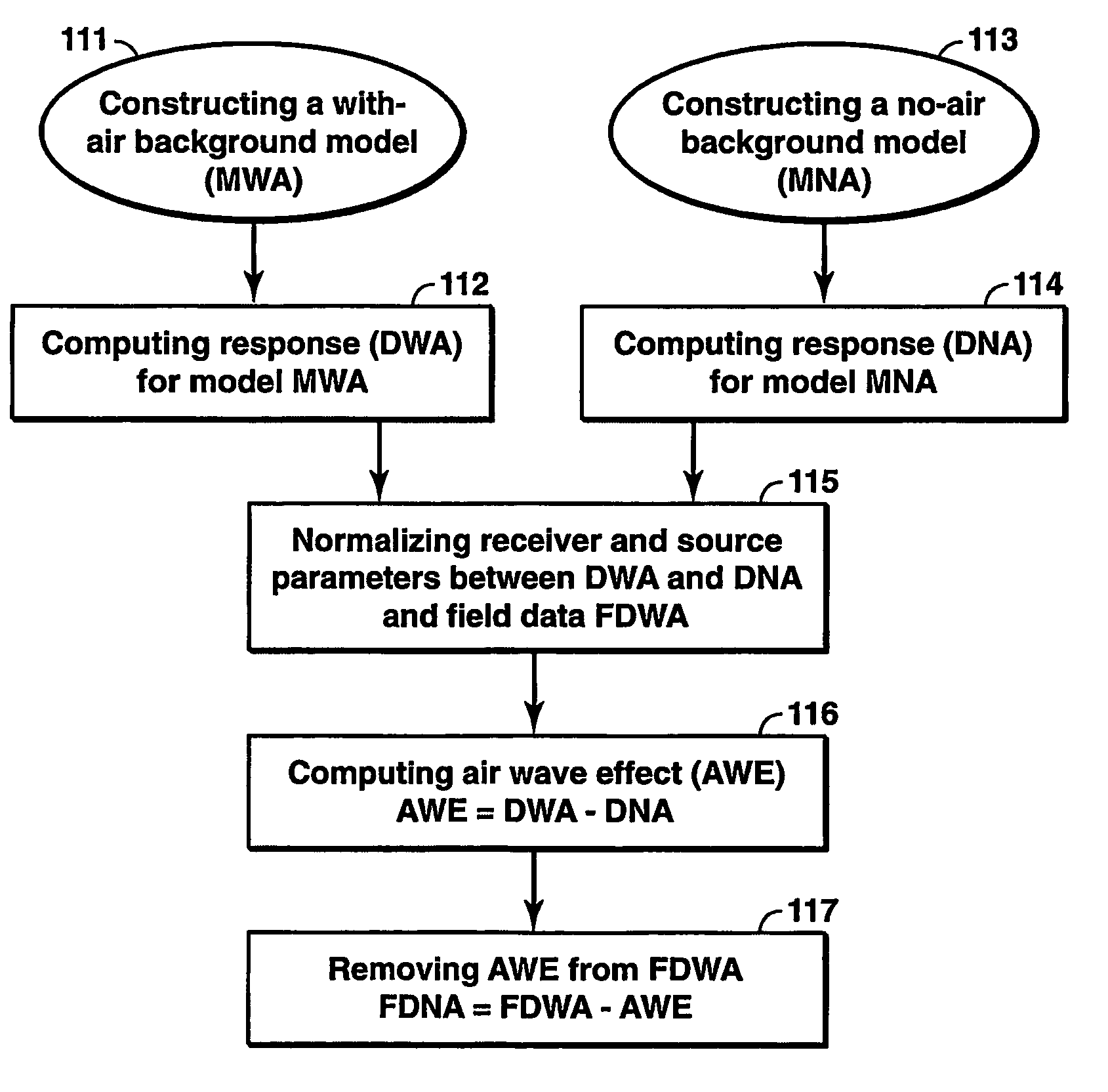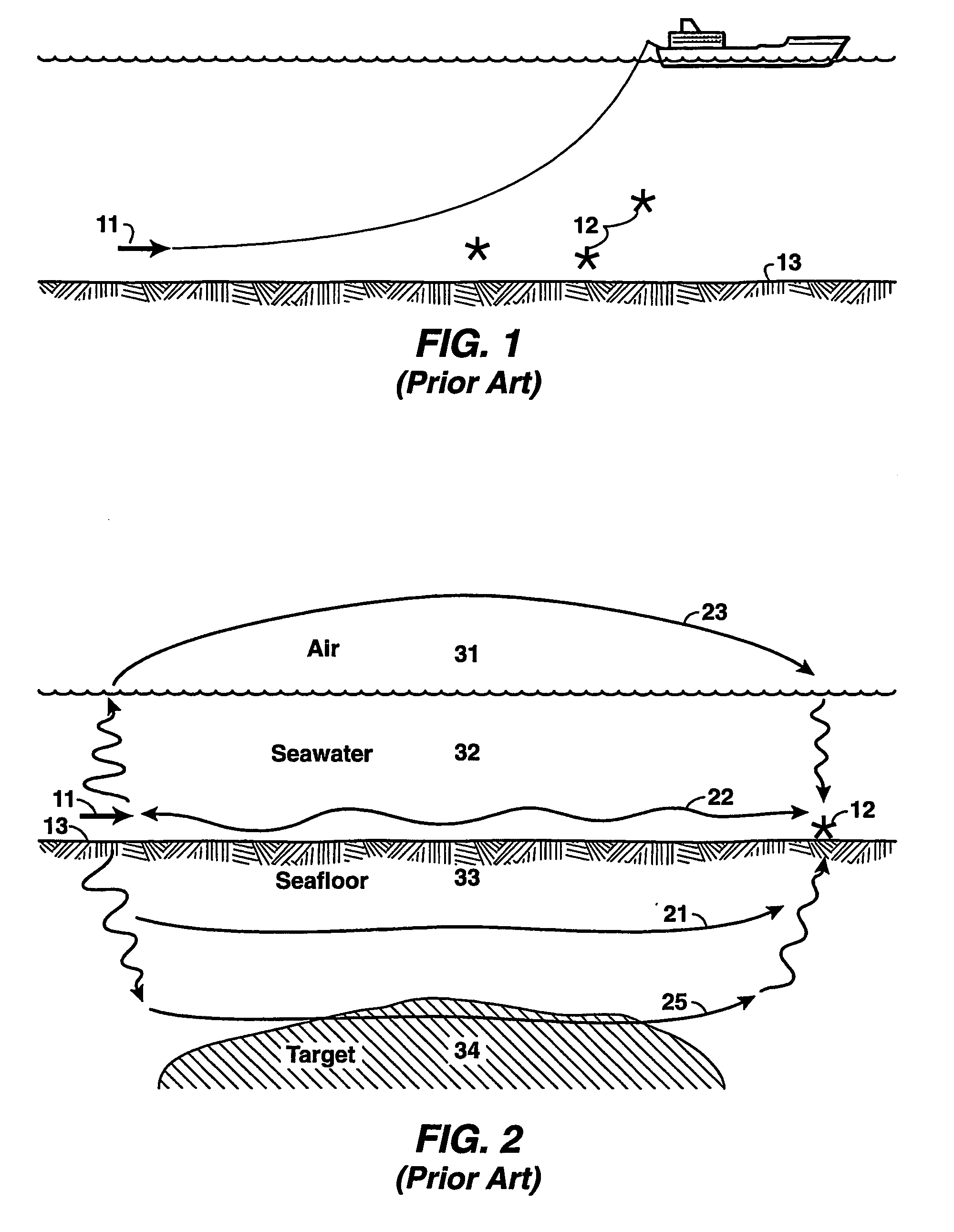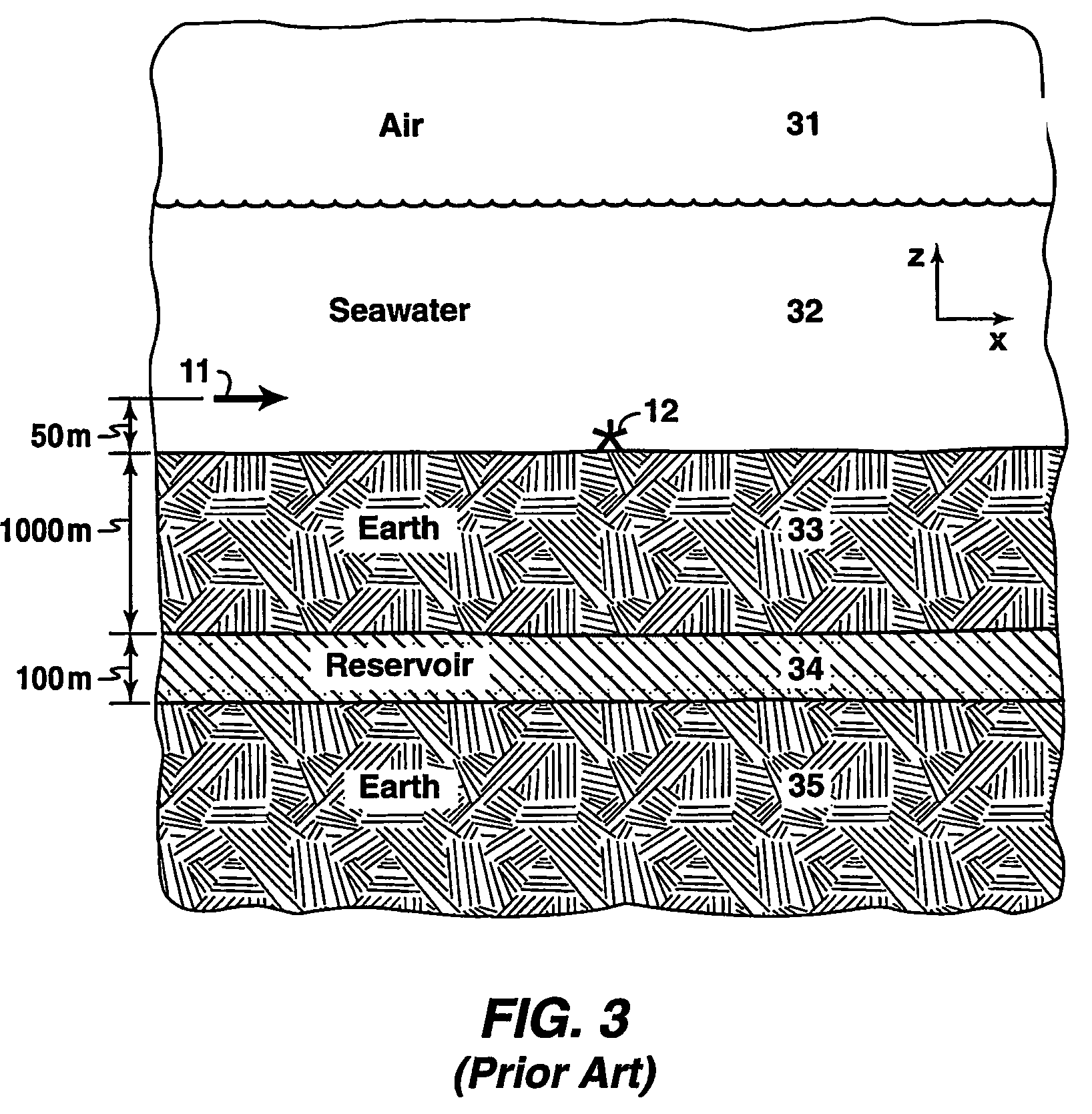Method for removing air wave effect from offshore frequency domain controlled-source electromagnetic data
a technology of electromagnetic data and controlled-source frequency domain, applied in the field of geophysical prospecting, can solve the problems of air wave interference, noise in field data, air wave effect problem,
- Summary
- Abstract
- Description
- Claims
- Application Information
AI Technical Summary
Benefits of technology
Problems solved by technology
Method used
Image
Examples
examples
[0043]All of the following examples assume a unit-strength transmitter generating radiation at a frequency of 0.25 Hertz. This value is chosen for illustrative purposes only and, as those skilled in the art will understand, in no way limits the present invention.
[0044]The 1-D model shown in FIG. 6A was used to generate a data set used as field data which have the air wave effect. (The reference numbers in FIGS. 5A-5B and 6A-6C are as defined for FIG. 3.) Those data (FDWA) are graphed in FIGS. 7A (amplitude vs. offset) and 7B (phase vs. offset). They are the curves of small circles, designated 71 and 72. The model is essentially the same as that of FIG. 3, except that the seawater layer is 250.0 m thick for this example. As shown in FIG. 3 (but not shown in FIG. 6), an x-directed horizontal electric dipole source is towed 50.0 m above the seafloor in the x-direction from −15.0 km to 15.0 km. A receiver located on the seafloor is directly below the mid-point of the source tow line. Th...
PUM
 Login to View More
Login to View More Abstract
Description
Claims
Application Information
 Login to View More
Login to View More - R&D
- Intellectual Property
- Life Sciences
- Materials
- Tech Scout
- Unparalleled Data Quality
- Higher Quality Content
- 60% Fewer Hallucinations
Browse by: Latest US Patents, China's latest patents, Technical Efficacy Thesaurus, Application Domain, Technology Topic, Popular Technical Reports.
© 2025 PatSnap. All rights reserved.Legal|Privacy policy|Modern Slavery Act Transparency Statement|Sitemap|About US| Contact US: help@patsnap.com



